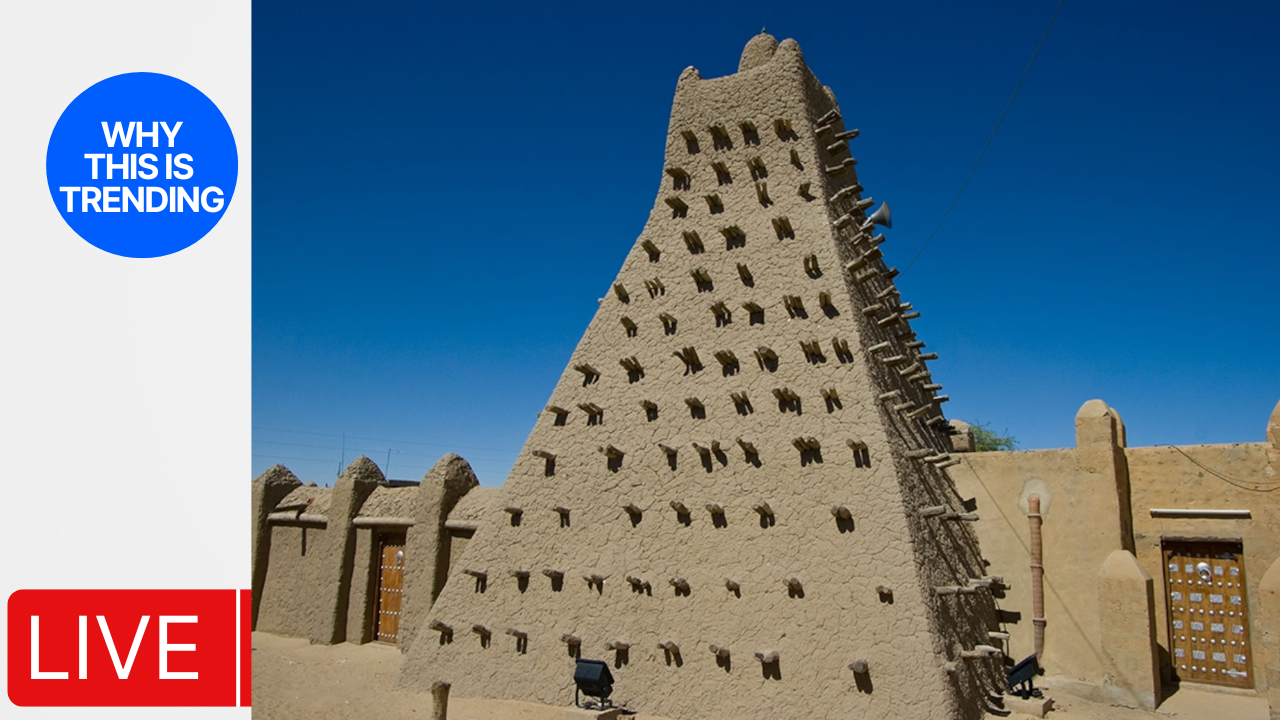Timbuktu—the name alone brings to mind faraway deserts, golden legends, and tales of lost knowledge. Even in 2025, this ancient city in Mali still sparks curiosity and wonder, popping up in global headlines and social media feeds. But why is Timbuktu so famous, and what keeps it a topic of conversation centuries after its golden age?
Timbuktu’s Golden Days
It all started around 1100, when Tuareg nomads founded Timbuktu as a desert outpost. The city’s real rise came later, thanks to its prime spot along massive trans-Saharan trade routes. Imagine lines of camels hauling gold, salt, ivory—even slaves—across scorching sands. The city flourished under the Mali Empire, especially during the reign of Mansa Musa (1312–1337). When Musa made his famous pilgrimage to Mecca in 1324, he spent so much gold that he reportedly caused an economic crisis in Cairo. Stories of Timbuktu’s riches spread fast.
But gold wasn’t the only treasure. Timbuktu became a beacon of Islamic learning, home to Sankore University—where up to 25,000 students once gathered—and thousands of manuscripts on everything from astronomy to medicine. The city’s legendary mud-brick mosques—like Djingareber and Sankore—still stand as reminders of this era, drawing visitors and scholars from across the world.
Why People Still Talk About Timbuktu
What makes Timbuktu’s fame so enduring? A few key reasons:
- Wealth and Wonder: Legends of riches piled high and Mansa Musa’s wild generosity made the city sound like Africa’s own El Dorado. Europeans dreamed about this land of gold for centuries.
- A Center of Learning: Timbuktu’s universities put it on par with the greatest cities of the medieval world. Those ancient books and teachings are still celebrated for their depth and preservation.
- The Ultimate Faraway Place: Being so remote, it became a symbol for “the ends of the earth.” For years, Europeans tried and failed to reach it; when explorer René Caillié finally made it in 1828, it was a huge deal.
- Pop Culture Myth: From old poems to modern slang (“from here to Timbuktu”), the city’s mysterious pull never faded.
- Current Spotlight: Its stunning manuscripts and historic mosques still make headlines—sometimes for happy reasons, sometimes because of threats from conflict or climate.
Check Google Trends and you’ll see the pattern: steady interest in “why is Timbuktu so famous,” with searches spiking after big news like the militant attack in June 2025 or new finds in its libraries.
Myth vs. Reality
It’s easy to picture Timbuktu as a city of endless gold and wandering scholars, but real life tells a tougher story. By the time European explorers arrived, its glory days had faded—wars, invasions, and new trade routes brought decline and poverty. The “El Dorado” story was mostly myth. Many of Mansa Musa’s riches actually came from mines elsewhere, not Timbuktu itself.
Today, the city faces serious challenges. The encroaching Sahara eats away at farmland and water. Ongoing conflict—like the JNIM attack in June 2025—keeps tourists away and puts local lives at risk. Priceless manuscripts and ancient mosques fight off decay, sand, and threats from smugglers, while UNESCO lists Timbuktu as a World Heritage site in danger.
Modern Struggles—and Hopes
- Desertification: Every year, the desert creeps closer, making life harder for families and farmers.
- Security Issues: Attacks and unrest make travel risky and stop tourism—one of Timbuktu’s few sources of income.
- Preservation Battles: Saving the manuscripts and mosques is a race against weather, thieves, and time.
- Hard to Reach: No paved roads, lots of travel warnings—getting to Timbuktu is still an adventure.
How Can You Connect With Timbuktu’s Story?
- Dive into history: Watch documentaries or read up on the city’s most fascinating eras.
- Help protect the past: Support groups working to digitize and safeguard the manuscripts.
- Join the global conversation: Share your thoughts with #Timbuktu2025 or reach out to heritage organizations.
- Stay curious: Follow restoration updates and news about efforts to secure the city’s future.
What Will Timbuktu’s Future Hold?
If peace and preservation win out, Timbuktu could once again become a center for curiosity, learning, and careful tourism. Efforts to digitize its ancient texts offer hope, but myths and reality are always in tension here. Will the city reclaim its former glory, or fade further into legend? For now, Timbuktu’s story is still being written—one both rooted in golden ages and shaped by the struggles of today.


